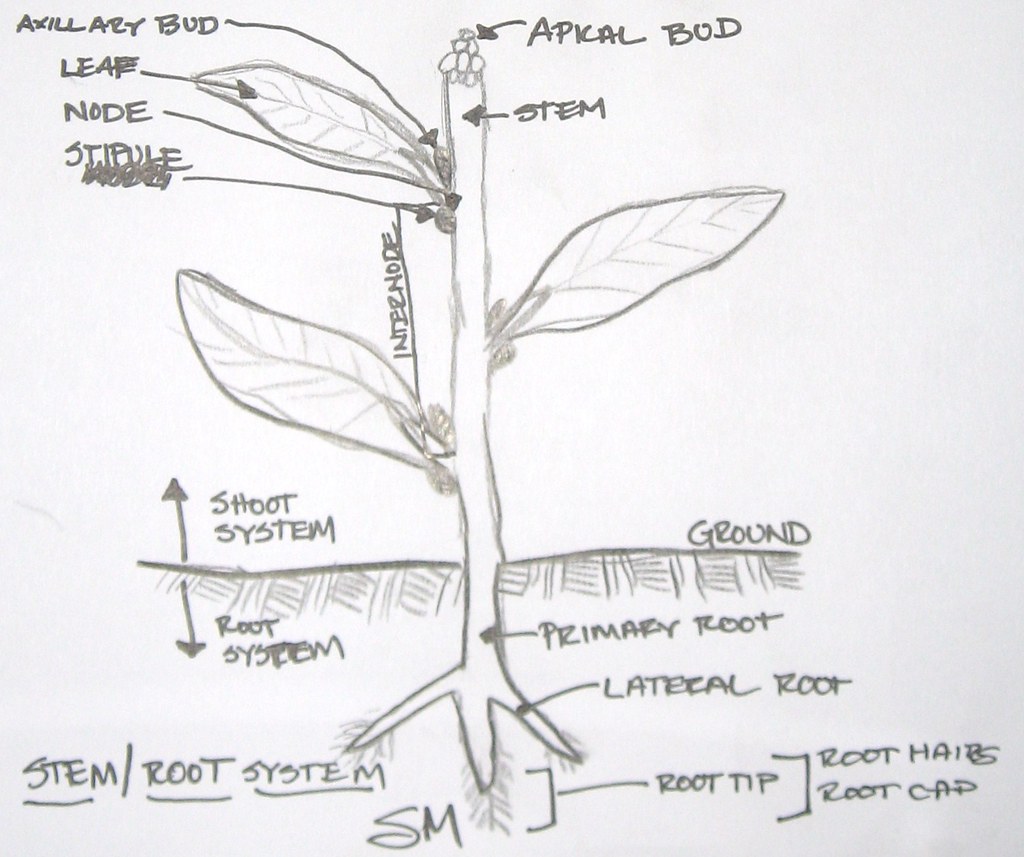No, vinegar will not kill lilac roots. Lilacs are a hardy plant species and can tolerate moderate amounts of vinegar.
Lilacs are a beautiful addition to any garden or outdoor space. However, sometimes they can become a nuisance or overgrown, which leads to them encroaching on other plants in the area. This is where the idea of using vinegar to kill the roots comes in.
While vinegar may be effective on some plants, it will not work on lilac roots. Lilacs are known for their hardiness and adaptability, which means they can handle a moderate amount of vinegar without experiencing any adverse effects. In fact, using vinegar on lilac plants may even harm the surrounding soil and other plants. Instead of using vinegar, it’s best to use more traditional methods such as pruning or digging up the plant to prevent it from overtaking the surrounding area.
What Is Vinegar And How Does It Work As A Herbicide?
Lilacs are beautiful flowers that add charm to any garden with their romantic fragrance. However, sometimes they can be too invasive, spreading their roots and overpowering other plants. It is a common concern for gardeners who want to get rid of lilac roots without harming other plants.
With that in mind, many people wonder whether vinegar is an effective solution for killing lilac roots. So, let’s get into it – what is vinegar, and how does it work as a herbicide?
Definition Of Vinegar
Vinegar is a liquid that contains acetic acid, which is produced through fermentation. It is commonly used as a condiment to add flavor to food. However, it also has non-culinary uses, such as cleaning agents, disinfectants, and herbicides. In horticulture, vinegar is known as a natural herbicide to control weeds.
Concentrations Used For Weed Control
Vinegar is commercially available in different concentrations, ranging from 5% to 20% or even higher. For weed control, horticultural vinegar with a concentration of 20% acetic acid is the most effective. The higher concentration of acetic acid increases the corrosiveness of vinegar, making it more effective at killing weeds.
However, it is essential to use caution when handling high concentrations of vinegar, as it can cause chemical burns or even blindness.
Mechanism Of Action In Killing Plants
The mechanism of action of vinegar as a herbicide is different from conventional chemical herbicides. Vinegar herbicide destroys plant tissues by causing a desiccation process that dries out the leaves and stems, resulting in the plant’s death. The acetic acid in vinegar attacks and removes the protective waxy layer on the plant’s leaves, which causes dehydration and death.
The acid also affects the pH balance in the soil, making it more acidic and less plant-friendly.
To sum it up, vinegar can be used effectively as a herbicide, and it is environmentally friendly, non-toxic, and cheap. However, it is important to be careful when using concentrated vinegar and to apply it only to the plants you want to kill, as it can also harm other plants and soil microorganisms.
So, if you want to kill lilac roots, vinegar can be a sustainable solution as long as you use it with caution.
Understanding Lilacs And Their Root System
Lilacs are a visually stunning plant that can add value to any garden. They are a popular shrub due to their fragrant blooms and ability to attract pollinators such as bees and butterflies. While lilacs are relatively low-maintenance plants, understanding their root system is essential to ensure their healthy growth.
In this blog post, we’ll explore the anatomy of lilac roots and how vinegar affects them.
Basic Introduction To Lilac Shrubs
Lilacs are deciduous shrubs that belong to the Oleaceae family and are native to Europe and Asia. They can grow up to 20 feet tall and can live for decades with proper care. Lilacs bloom in late spring to early summer, producing fragrant cone-shaped clusters of flowers that come in various colors, including white, pink, purple, and blue.
The Importance Of Lilac Roots
The root system of a lilac is crucial to its overall health and ability to thrive. Roots are responsible for absorbing water and nutrients from the soil and anchoring the plant in place. Without a healthy root system, a lilac will suffer from stunted growth, wilting, yellowing leaves, and a decline in overall health.
Anatomy Of Lilac Roots
Lilac roots are classified as fibrous roots as they consist of many thin roots that spread out in all directions. These roots can grow up to three times the height of the plant and can reach as far as six feet from the trunk.
Here are the main components that make up a lilac root system:
- Taproot: This is the primary, central root that grows straight down from the base of the plant. It serves as an anchor for the plant and can grow up to 12 inches in length.
- Lateral roots: These roots branch off from the taproot and spread out horizontally in search of water and nutrients.
- Fibrous roots: These are small, hair-like roots that grow off the lateral roots and are responsible for absorbing water and nutrients.
Vinegar is often used as a natural weed killer, but it can also affect the roots of plants, including lilacs. The acidic nature of vinegar can dry out and damage the lilac root system, leading to stunted growth and poor plant health.
It’s best to avoid using vinegar near lilacs and other plants if possible.
Understanding the anatomy and importance of lilac roots is crucial to ensure the healthy growth and longevity of these beautiful shrubs. Avoid using vinegar near lilacs and always provide them with proper care and maintenance to keep them thriving for years to come.
Does Vinegar Harm Lilac Shrubs?
Vinegar is a common household item that can be used for several purposes. From food preservation to cleaning, vinegar has multiple uses. However, it is essential to know whether it can harm plants; in particular, lilac shrubs. Lilac shrubs are beautiful and add character and color to any garden or landscape.
Therefore, using vinegar on them has raised the question; Will vinegar kill lilac roots? In this blog post, we will focus on one question: Does vinegar harm lilac shrubs?
Explanation Of Potential Damage That Vinegar Might Have On Lilac Shrubs
Vinegar is an acidic substance that can help kill weeds if used in high concentrations. However, this same property can pose a threat to your lilac shrubs. Vinegar kills plant tissues, and if sprayed on lilac shrubs, it can cause the following damages:
- The leaves can turn yellow and eventually brown, leading to their death.
- The roots of the lilac shrubs can be damaged or killed, leading to stunted growth and eventually, the death of the shrub.
The Likelihood Of The Vinegar Impacting The Shrubs Above The Ground
The degree to which vinegar can harm lilac shrubs above ground is dependent on several factors such as:
- The concentration of the vinegar: A high concentration of vinegar is more likely to harm the shrubs than a low concentration.
- The frequency of application: Frequent application of vinegar can cause severe damage to the shrubs compared to a one-time application.
- The time of application: The most favorable time to apply vinegar is during the hot seasons as the vinegar dries up faster. If applied during the rainy season, the vinegar may accumulate around the roots, leading to damage to the plant.
The above-ground part of the shrubs can get damaged if vinegar is sprayed too close or in moderation, especially on the foliage. It is advisable not to spray vinegar directly on the shrubs’ leaves and instead apply it to the weeds around them.
To sum it up, vinegar can harm lilac shrubs if used irresponsibly, leading to stunted growth, yellowing leaves, and the eventual death of the plant. Therefore, it is essential to use vinegar on plants responsibly, especially in low concentrations.
Can Vinegar Control Lilac Weeds?
Lilac weeds can be a menace to any garden. Vinegar is a cheap and readily accessible natural herbicide that people often turn to for weed control. However, the question on everyone’s mind is whether vinegar can kill lilac roots, or at the very least, keep the lilac weeds under control.
In this section of the blog post, we’ll discuss the effectiveness of vinegar on lilac weeds and compare it to other herbicides for lilac weed control.
The Effectiveness Of Vinegar On Lilac Weeds
- Vinegar is effective in controlling lilac weeds, although it may not kill the roots completely.
- The acetic acid in vinegar causes the leaves to dry out and wither, which can help control the spread of lilac weeds.
- Vinegar may need to be reapplied several times to eradicate the root system fully.
- Adding salt to vinegar may improve its effectiveness as a herbicide. However, it is essential to use it sparingly, as an excess of salt can make the soil barren.
Comparing Vinegar To Other Herbicides For Lilac Weed Control
- Commercial herbicides like Roundup are effective in killing lilac weeds, but they may contain harmful chemicals that can leach into the ground and contaminate groundwater.
- Vinegar is an organic, natural herbicide that presents minimal risk of harming the environment.
- Boiling water or a propane torch are also alternative methods of weed control that do not require the use of herbicides.
- However, boiling water and propane torches can also damage plants close to the target weed.
While vinegar can help control lilac weeds and may even kill the roots after several applications, it may not be as effective as commercial herbicides. Nonetheless, vinegar is an organic and natural herbicide that poses minimal risk of harm to the environment.
For those looking for alternative methods, boiling water or propane torches can also do the job, but with some limitations to their effectiveness. Ultimately, the choice of herbicide or weed control method depends on individual preferences, the scale of the weed infestation, and the proximity of other plants that could be harmed.
Alternative And Safer Methods Of Managing Lilac Weeds
Lilac plants are attractive and fragrant, but they can also be difficult to manage because of their aggressive root system. Vinegar, a common household item, is often touted as a solution to killing lilac roots, but it has its disadvantages.
If you’re hesitant to use vinegar, there are alternative and safer methods for managing lilac weeds.
How To Get Rid Of Lilac Weeds Without Using Vinegar
Some non-chemical approaches to weed management include:
- Hand-pulling: This process is physically demanding but effective. Using gloves and a tool like a hoe, the weeds can be pulled from the ground, making sure the whole root is removed.
- Covering the soil: By using mulch, cardboard, or other coverings, you can suffocate the weeds without harming other plants in your garden. This also helps retain soil moisture and prevent erosion.
- Solarization: A simple method that utilizes the sun’s heat to kill weeds; it requires covering the soil with a clear plastic sheet to trap the heat and kill the roots. This method is effective when trying to clear a large area of weeds.
Non-Chemical Approaches To Weed Management
If you’re hesitant to use chemicals to manage weeds, there are non-chemical approaches to weed management. Some of these approaches include:
- Crop rotation: Planting different crops in rotation schedules can disrupt weed growth, promoting beneficial soil microorganisms and minimizing the establishment of weeds.
- Companion planting: This involves growing different plants together that support each other. Some plants can repel or attract specific pests, improving the soil’s overall health and environment, and making it non-conducive for weed growth.
- Soil improvement: Improving the soil’s condition and fertility can help control weed growth. You can add soil conditioners, like compost or organic matter, that can smother weed growth, making it difficult for them to establish their roots.
- Biological control: This is a method that uses natural predators or disease organisms to manage weeds in a particular area.
It’s essential to note that non-chemical weed management methods require time and effort to achieve the desired results. Patience and consistency are key when implementing these approaches. These alternatives are also cheaper, eco-friendly, and better for the environment than chemical solutions.
With proper care and management, lilac plants can thrive and be an excellent addition to your garden without causing harm to the environment.
Frequently Asked Questions For Will Vinegar Kill Lilac Roots
What Is Vinegar, And How Does It Affect Lilac Roots?
Vinegar is an acidic herbicide that can affect lilac roots by lowering the soil ph level and inhibiting root growth. It’s important to dilute vinegar before using it as a herbicide to mitigate damage to the plant.
What Are The Dangers Of Using Vinegar On Lilac Roots?
Vinegar can damage not only lilac roots, but also the surrounding soil and other plants. Using undiluted vinegar or using vinegar too close to the plant can result in root burn, stunted growth, and even death.
Is Vinegar An Effective Way To Get Rid Of Lilac Roots?
While vinegar can help control weeds, it’s not an effective way to get rid of lilac roots. The roots are hard to kill, and the acidic nature of vinegar can make it difficult for other plants to grow in the area.
Should I Use Vinegar As A Herbicide For Lilac Roots?
It’s not recommended to use vinegar as a herbicide for lilac roots. There are other safer and more effective methods, such as digging out the root system or using chemicals specifically designed for lilac root control.
How Do I Protect My Lilac From Vinegars’ Negative Effects?
To protect your lilac from vinegar’s negative effects, make sure to dilute the vinegar before using it as a herbicide and apply it carefully to avoid contact with the plant. Watering the plant before and after application can also help neutralize the acid.
Conclusion
Overall, the use of vinegar to kill lilac roots is a complicated topic. While vinegar has been known to have herbicidal properties and can be effective in killing certain types of plants, it is not a guaranteed solution for lilac roots.
It is important to consider the potential damage that vinegar can cause to the soil and surrounding plants before using it as a treatment option. Additionally, it is crucial to properly identify the type of lilac and the extent of the root system before attempting any form of removal.
Ultimately, seeking the help of a professional landscaper or arborist can be a safer and more effective solution. With proper care and consideration, you can successfully remove lilac roots without harming the surrounding plants and ecosystem.
Related Topic:
Insect Invasion: Threat to Utah’s Fir Forests
 Dr Ahsanur Rahman, PHD
Dr Ahsanur Rahman, PHD
UK Forests Collapse Imminent: Act Now Against Climate!
 Dr Ahsanur Rahman, PHD
Dr Ahsanur Rahman, PHD
Lightning Strikes Threat: Boreal Fires Jeopardize Carbon
 Dr Ahsanur Rahman, PHD
Dr Ahsanur Rahman, PHD










